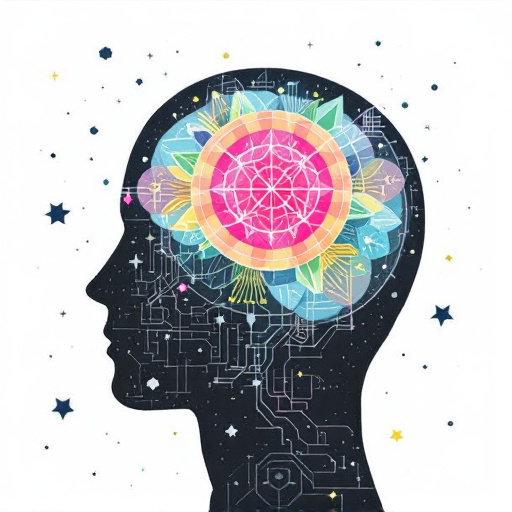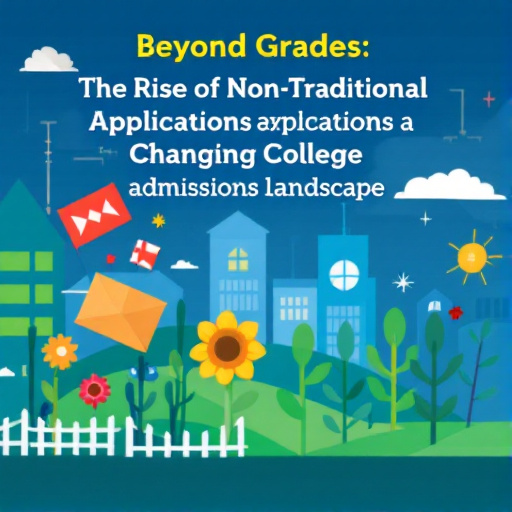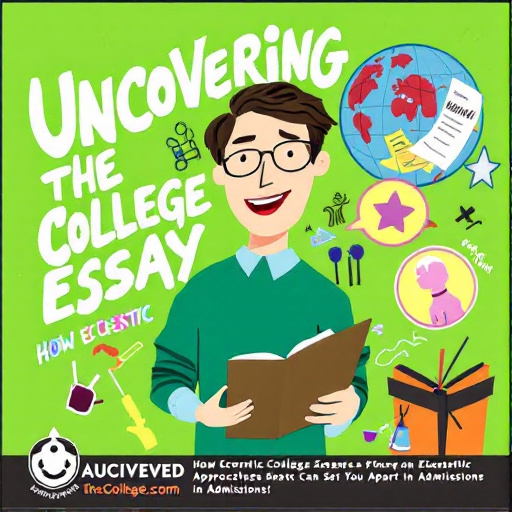Featured Articles
- 5 Unexpected Financial Aid Secrets Every College Applicant Must Know Before You Submit
- "Beyond Grades: How Mental Health Spaces Are Shaping College Applications in 2023"
- "Beyond Grades: The Rise of Non-Traditional Applications in a Changing College Admissions Landscape"
- Beyond the Basics: How TikTok Influencers are Shaping College Application Trends in 2023
- The Hidden Cost of College Applications: How Mental Health Influences Admission Success
"When AI Meets Admissions: The Rise of Algorithm-Driven College Applications"
"When AI Meets Admissions: The Rise of Algorithm-Driven College Applications"
The landscape of college admissions is undergoing a seismic shift, with artificial intelligence (AI) increasingly playing a pivotal role in shaping how students apply to colleges. This article explores the implications of algorithm-driven applications, their benefits and drawbacks, and the future of education as we know it.
The Catalyst of Change: The Rise of AI
In the modern world, AI has infiltrated nearly every industry, from healthcare to entertainment, transforming the way we live and work. College admissions are no exception. Algorithms can analyze massive amounts of data, creating efficiencies in processes that were once tedious and highly subjective. For instance, a study by the College Board revealed that nearly 60% of applications were submitted via online platforms in 2020, a number that has only increased since.
Understanding the Mechanisms of AI in Admissions
AI tools can serve multiple purposes in college admissions. For starters, they can sift through thousands of applications in mere seconds, identifying students who meet specific criteria based on past data. This device isn’t just about speed; it’s about precision. For instance, the University of California system has successfully implemented a predictive analytics tool to assess applicant likelihood of success, using student grades, extracurricular activities, and socioeconomic data as parameters.
Statistics and Numbers: The Proof in the Pudding
According to a 2021 report by McKinsey, institutions that have adopted AI technology for admissions have reported a 30% increase in application evaluation efficiency. It’s important to note that this doesn’t just benefit the universities; students can receive quicker responses and move on with their plans, reducing the anxiety often tied to waiting for admission decisions.
The Ethical Debate: Fairness Versus Efficiency
But, as with any technological advancement, the rise of AI in admissions comes with its own set of challenges, the most pressing being fairness. Do algorithms perpetuate existing biases? A recent study by the American Educational Research Association found that algorithms are often trained on historical data that may contain biases, such as socioeconomic status or ethnicity. Thus, if AI continues to simply replicate existing inequalities, we risk entrenching them deeper in our education system.
Addressing the Biases in AI
To counteract these potential pitfalls, some colleges are actively working on strategies to improve their algorithms. For example, the Massachusetts Institute of Technology (MIT) is collaborating with experts in ethics and AI to develop frameworks that ensure fair evaluation processes. “It’s about creating an equilibrium,” said Dr. Ellen Johnson, an AI ethicist at MIT, during a recent panel discussion. “We must strive to leverage technology while being acutely aware of its long-term repercussions.”
The Student Perspective: Human Touch Meets Technology
From the viewpoint of students, the intersection of AI and admissions can be a mixed bag. On one hand, an AI-driven application process might make things smoother, but some students are concerned about losing the human element. “I feel like I’m just another data point,” says Jenna, a high school senior from Los Angeles. “I really want to know that the institution I’m applying to sees me as a person, not just an algorithmic output.”
The Personal Touch: Supplementing AI with Human Review
Many colleges recognize this concern and are implementing hybrid systems that combine AI analytics with human insights. A case study from Oberlin College illustrates this dual approach, where initial algorithmic screenings inform human evaluators during the application review phase. This way, nuances in a student's story are not overlooked, ensuring a more balanced and comprehensive evaluation.
The Changing Landscape of College Applications
So what does this all mean for future college applicants? Well, first and foremost, students must adapt to this evolving landscape. Greater emphasis will be placed on data-driven accomplishments, such as SAT scores, GPAs, and extracurricular involvements. However, it’s crucial for students to also present their unique stories, an aspect where the human review component of admissions can still shine.
Case Studies: Success and Failure in AI Implementation
The use of AI in college admissions is not without its pitfalls. Take the 2022 example from a prominent Ivy League institution where a newly implemented AI tool incorrectly flagged a significant number of high-achieving students as “low potential.” The result? A wave of protests ensued from students and faculty, emphasizing the need for careful consideration of AI’s role in admissions. Conversely, less prestigious institutions have reported that AI helped them increase diversity in their incoming class, achieving a previous goal of theirs.
A Glimpse into the Future of College Admissions
As we move forward, the combination of AI and human collaboration seems to be the most effective model. While AI can process the mountains of data and reveal patterns in applicant success, the ultimate decision-making should remain a human—albeit informed—process. According to the National Association for College Admission Counseling, 40% of admissions professionals believe that integrating AI into admissions is a trend that’s here to stay.
Adapting to Change: Skills for the Next Generation
It’s vital for students preparing for college to cultivate skills that will set them apart in a data-driven landscape. Critical thinking, creativity, and interpersonal skills will become invaluable commodities as generative AI grows more sophisticated. Employers already express a preference for soft skills alongside technical prowess. As it turns out, the right mix of both can significantly elevate one's prospects, both in college admissions and later in life.
The Humor in the Situation
Let’s not forget a lighthearted perspective on AI in college admissions. Imagine a future where AI is at the helm. “Does the algorithm think I can do a kickflip while reciting Shakespeare?” muses Tom, a fictional 17-year-old aspiring student. “Because if it’s based solely on my kickflip, college may be out of reach!” This absurd snapshot speaks to a real concern about a one-size-fits-all approach. Just because you can write a fantastic code doesn’t mean you can chug a 12-pack of soda without a burp contest victory, right?
Conclusion: The Path Forward
As AI continues to reshape admissions, a balanced approach is vital—one that values data while appreciating the human stories behind those numbers. The power of AI can undeniably transform the efficiency and inclusivity of the college application process, but it’s crucial to maintain a human lens through which these algorithms operate. As this evolution unfolds, both students and educational institutions must adapt, ensuring that this digital leap does not eclipse the individualized elements that are crucial in education.
In the end, the question isn't whether AI should be involved in college admissions but rather how to harness its benefits while mitigating its accompanying risks. With careful attention to fairness and human interaction, the future of college admissions could very well be a blend of technology and the timeless human stories that lie at the heart of education.




